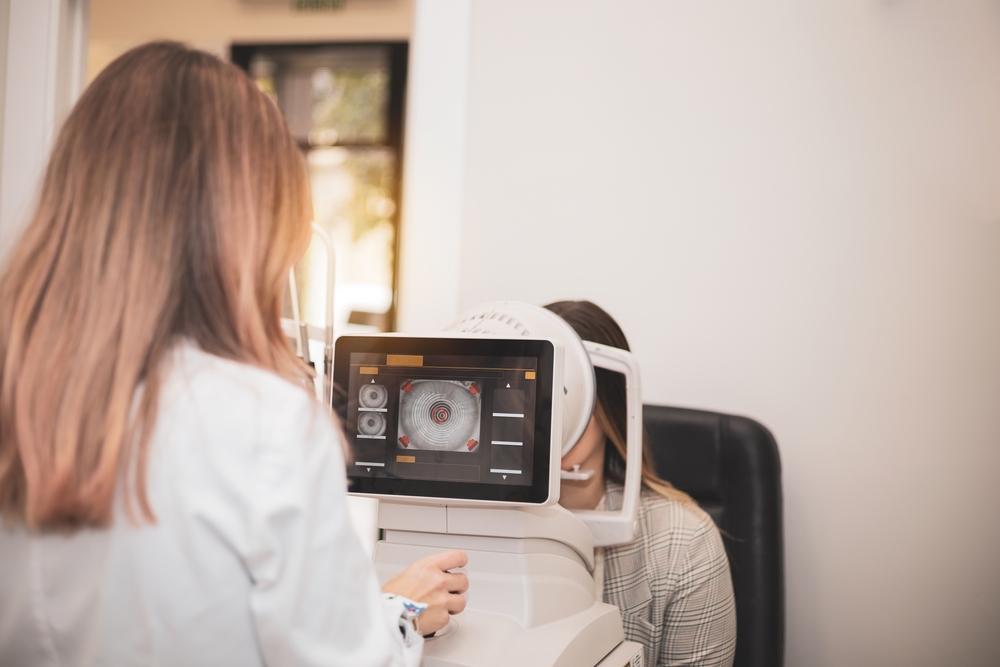
The cornea is the transparent, dome-shaped front part of your eye that helps focus light into your eye, allowing you to see clearly. Unfortunately, various corneal diseases can affect the health and function of this vital structure, potentially leading to vision problems or even vision loss if left untreated.
What is Corneal Disease?
Corneal disease is a broad term that encompasses a range of conditions affecting the cornea. These conditions can be caused by various factors, including infections, injuries, genetic disorders, and underlying health issues. When the cornea becomes damaged or compromised, it can lead to a variety of symptoms and vision problems.
Common Corneal Diseases and Their Symptoms
Some of the most common corneal diseases include:
Keratitis: An inflammation of the cornea, often caused by infections, injuries, or autoimmune disorders. Symptoms may include redness, pain, sensitivity to light, and blurred vision.
Corneal Ulcers: Open sores or wounds on the cornea, typically caused by bacterial, viral, or fungal infections. Symptoms may include pain, redness, discharge, and decreased vision.
Keratoconus: A progressive thinning and distortion of the cornea, which can lead to irregular astigmatism and decreased visual acuity. Symptoms may include blurred or distorted vision, sensitivity to glare, and difficulty driving at night.
Corneal Dystrophies: A group of genetic disorders that can cause the cornea to become opaque or develop abnormal deposits, leading to vision problems. Symptoms may vary depending on the specific type of dystrophy.
Early detection and diagnosis of corneal diseases are crucial for effective management and treatment. Many corneal conditions can be successfully treated if caught early, preventing further damage and vision loss. Regular eye exams with an ophthalmologist or optometrist are essential for identifying any issues with the cornea and addressing them promptly.
Preventive Measures for Corneal Diseases
While some corneal diseases may have a genetic or underlying medical component, there are several steps you can take to reduce your risk and prevent corneal problems:
1. Maintain Good Eye Hygiene: Wash your hands regularly, avoid touching your eyes with unclean hands, and properly clean and store your contact lenses (if you wear them) to prevent infections.
2. Wear Sunglasses: Protect your eyes from harmful UV rays by wearing sunglasses when spending time outdoors.
3. Manage Underlying Health Conditions: Conditions like diabetes, autoimmune disorders, and dry eye syndrome can increase your susceptibility to corneal problems. Work closely with your healthcare providers to keep these conditions under control.
4. Quit Smoking: Smoking is a significant risk factor for various eye diseases, including corneal disorders. Quitting smoking can significantly reduce your chances of developing corneal issues.
5. Maintain a Healthy Lifestyle: A balanced diet, regular exercise, and good sleep habits can all contribute to overall eye health and help prevent corneal diseases.
The Role of Regular Eye Exams in Preventing Corneal Diseases
Regular eye exams with an ophthalmologist or optometrist are essential for the early detection and prevention of corneal diseases. During these appointments, your doctor will thoroughly examine the health and condition of your corneas, as well as check for any signs of underlying issues that may affect your corneal health. By scheduling routine eye exams, you can:
Identify corneal diseases or risk factors early, when they are more treatable.
Monitor any changes in your corneal health over time.
Receive personalized recommendations for preventive measures and treatment options.
Catch other vision problems that may contribute to or be related to corneal diseases.
Taking Proactive Steps for Preventing Corneal Diseases
Corneal diseases can have a significant impact on your vision and overall eye health, but the good news is that many of these conditions can be prevented or managed effectively with the right approach. By understanding the common types of corneal diseases, their symptoms, and the steps you can take to protect your eyes, you can take a proactive role in maintaining the health and function of your corneas.
To schedule an eye exam and learn more about preventing corneal diseases, contact the experienced team at Raleigh Eye Center. Our ophthalmologists and optometrists are dedicated to providing personalized care and helping you maintain optimal eye health. Visit our office in Raleigh, Durham, Reidsville, Henderson, North Carolina, or South Hill, Virginia. Call (919) 899-2472, (919) 876-2427 or (252) 492-8021 to book an appointment today.













